The mobile port for Apollo Justice: Ace Attorney is finally out for Android and iOS devices — however, there’s one small difference. Thank’s to iOS’s pay-as-you-go pricing plan, Episode 1 was split up into two parts. For Android users, this means little more than a speedbump in the overall experience, since you pay full price up front.
Today we’re taking a look at Part 1 of the Turnabout Trump case. You can find our guide to Part 2 by following this link.
Episode 1 – Turnabout Trump Part 1 Case Guide
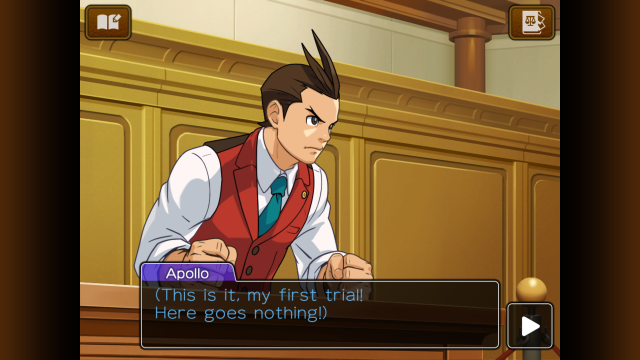
You play as Apollo Justice, a new defense attorney who just got assigned to their first trial — a homicide, no less. It’s your job to Press the defendant and witnesses on the stand for more information and Present contradictions to the court in a process called Cross-Examination. If you want to maintain your edge in the courtroom and defend your client, you can’t afford to mess up.
In this guide, we’ll walk you through everything you need to know about the Cross-Examination for Turnabout Trump Part 1 in Apollo Justice: Ace Attorney. We don’t want to spoil you on the juicy story as it unfolds before you, so we’ll only present what you need to know to successfully defend your client.
Cross-Examination: The Competition
The defendant, Phoenix, gives his testimony on the Competition. Something’s a little fishy about it, but so far everything checks out with the evidence at hand. We must Press him for more information.
My real job is to take on interested customers over at the poker table.
His job is to play poker? What sort of poker player gets paid a salary to play against customers? Press him on this line of his testimony to learn more about his real job.
The room where we play and the competition in there are the club’s main attractions.
Ok, I can see the competition being a main attraction, but the room? What’s so special about the room itself? Press him for more information.
The rules are simple: we play a game of poker using two decks of cards.
Two decks of cards? Why two decks? For a statement as innocent as the rules of the game, it sure does smell fishy. Press him here to learn more. Pressing all three of these statements triggers a discussion in the courtroom that leads to the defendant, Phoenix, amending his statement.
I plead silence regarding the murder. But I will say I never touched the murder weapon.
He claims he never touched the murder weapon, yet that sounds like a direct contradiction to a certain piece of evidence we got a little earlier in the trial.
Grape juice bottle used as the murder weapon. Bears the defendant Mr. Wright’s prints.
Working on the assumption that the Deadly Bottle is the murder weapon, Phoenix’s fingerprints on the bottle contradicts his testimony. Present the Deadly Bottle as a contradiction to the court.
Cross-Examination: That Fateful Night
After a bit of discussion amongst the court, the prosecution pulls up their first witness, Olga, for her testimony.
That man flew at victim, and is strangling him to death!
Strangled, you say? The Deadly Bottle was the murder weapon, though, right? This doesn’t make any sense.
The time of death was around 2 AM, April 17. Death caused by single blow to forehead.
The witness, Olga, claims the victim was strangled to death, yet the Autopsy clearly reports that he died from a single blow to the forehead. This is a glaring contradiction. Present Smith’s Autopsy Report to the court on that statement in her testimony.
That’s not all that’s fishy about her testimony, though.
The victim, he plays whole time with his hand on locket at his neck.
A locket at his neck? What’s the point of mentioning this? Does the victim even have a locket on?
Judging from Crime Photo 2, the victim does not, in fact, have a locket on. Why would she say he had a locket? Present Crime Photo 2 as a contradiction to the court on the corresponding statement in her testimony.
Cross-Examination: Serious Competition
After a short discussion, the court asks the witness, Olga, to provide them with a testimony on the poker game.
House chips come in two size: small and large.
That’s great, so there are two kinds of house chips. But what do the house chips represent? Press her about it.
When pressed about the chips, Olga becomes flustered. After a short dialogue, you’ll be prompted to either Press Harder or stop. Press Harder when given the chance to learn more about the chips.
She lays out some interesting information that helps us understand the game of poker better. When the judge asks you whether or not you’d like to Add to Testimony, do so.
One kind of chip is worth 100 points, other kind is worth 1,000. Two kinds in all.
Alright, that makes sense. Logically, the big chip would be worth more, right? If that’s the case, then why does the Chip Photo look so weird?
Take a long look at this piece of evidence. Count the chips up; you’ll find there are 10 big chips and 6 small chips. If there are 7,000 total points, then what gives? Present the Chip Photo as a contradiction to the court on the statement talking about points.
The Chip Photo causes confusion in the courtroom as everyone tries to figure out the real value of the chips. However, when you really think about it, it seems like the entire thing was a giant misunderstanding caused by poor communication. Share the conclusion that Both were right with the court.
Cross-Examination: The Final Hand
After another brief discussion and a not-so-shocking reveal from the witness, Olga, the court asks her to testify on the Final Hand.
If you look at both men’s hands, cheat is more obvious!
This is too vague. How is the cheat obvious? What happened? I can’t tell that there was a cheat looking at the Chip Photo. Press the witness for more information.
Mr. Smith’s hand has three aces, and Mr. Wright’s two. …It is five aces in all.
After a short back-and-forth, she amends her testimony on the cheat. However, this doesn’t look quite right. Did Mr. Smith really have three aces?
Take another look at the Chip Photo. There are obviously only four aces on the table, not five. Mr. Smith only has two aces. Present the Chip Photo as a contradiction to the court.
The judge doesn’t see the contradiction right away, so you have to point it out to him. Point to the third king — the one that replaced the third ace from Olga’s story — and Present it to the court.
The court goes back and forth on the matter of the victim’s hand. Eventually, the cards are brought in as evidence and you are asked which hand you’d like to examine. Obviously, you’ll want the more suspicious one, so select View Victim’s Hand.
Once you receive the Victim’s Hand, you’ll be asked to examine the evidence and look for something off. Turn the cards over and Present the out-of-place Blue Card to the court.
After a brief discussion, the court concluded that the card was swapped. But when could it have been swapped? Well, someone would have been caught if they swapped the card before or during the murder, so it’s like it happened After the Murder.
Who would have the motivation to swap the card after the murder, though? Neither Phoenix Wright nor Olga Orly is dumb enough to swap the fifth ace with a blue card, so it must be Someone Else.
After another debate and a shocking interruption from the defendant, Mr. Wright, the Judge adjourns court for recess.
This is where Episode 1, Turnabout Trump Part 1, cuts off. Check out the case guide for Part 2 here. We’re covering the entire Android and iOS port of Apollo Justice: Ace Attorney, so stick with us!

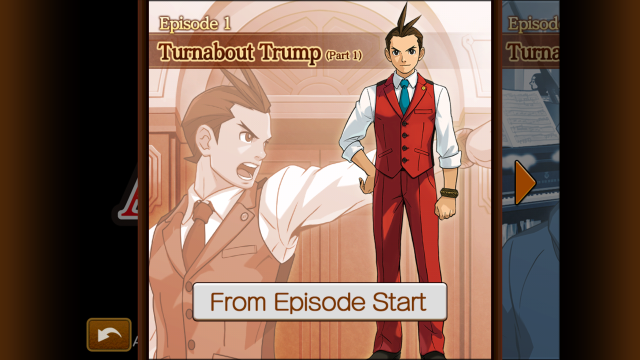

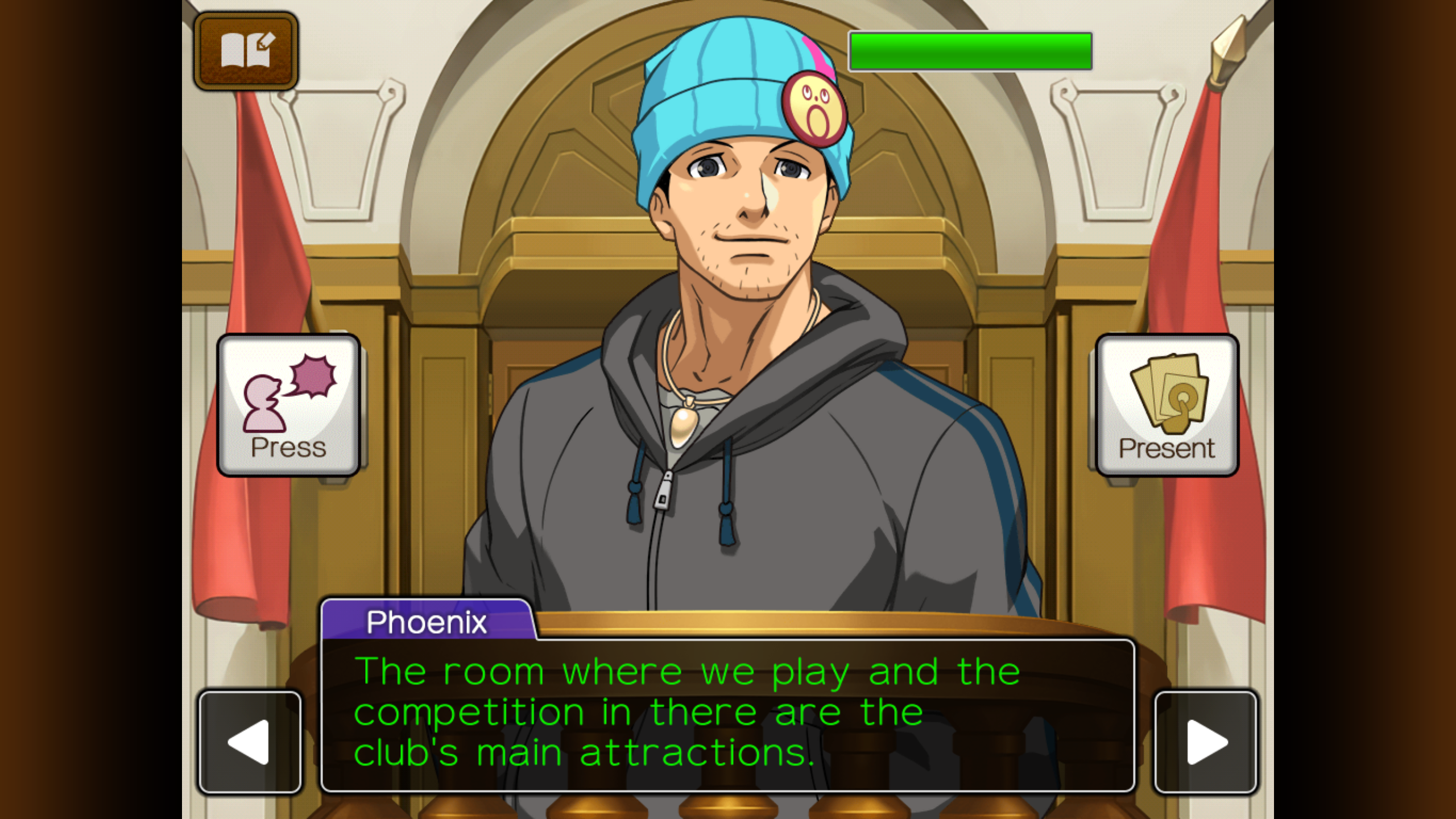
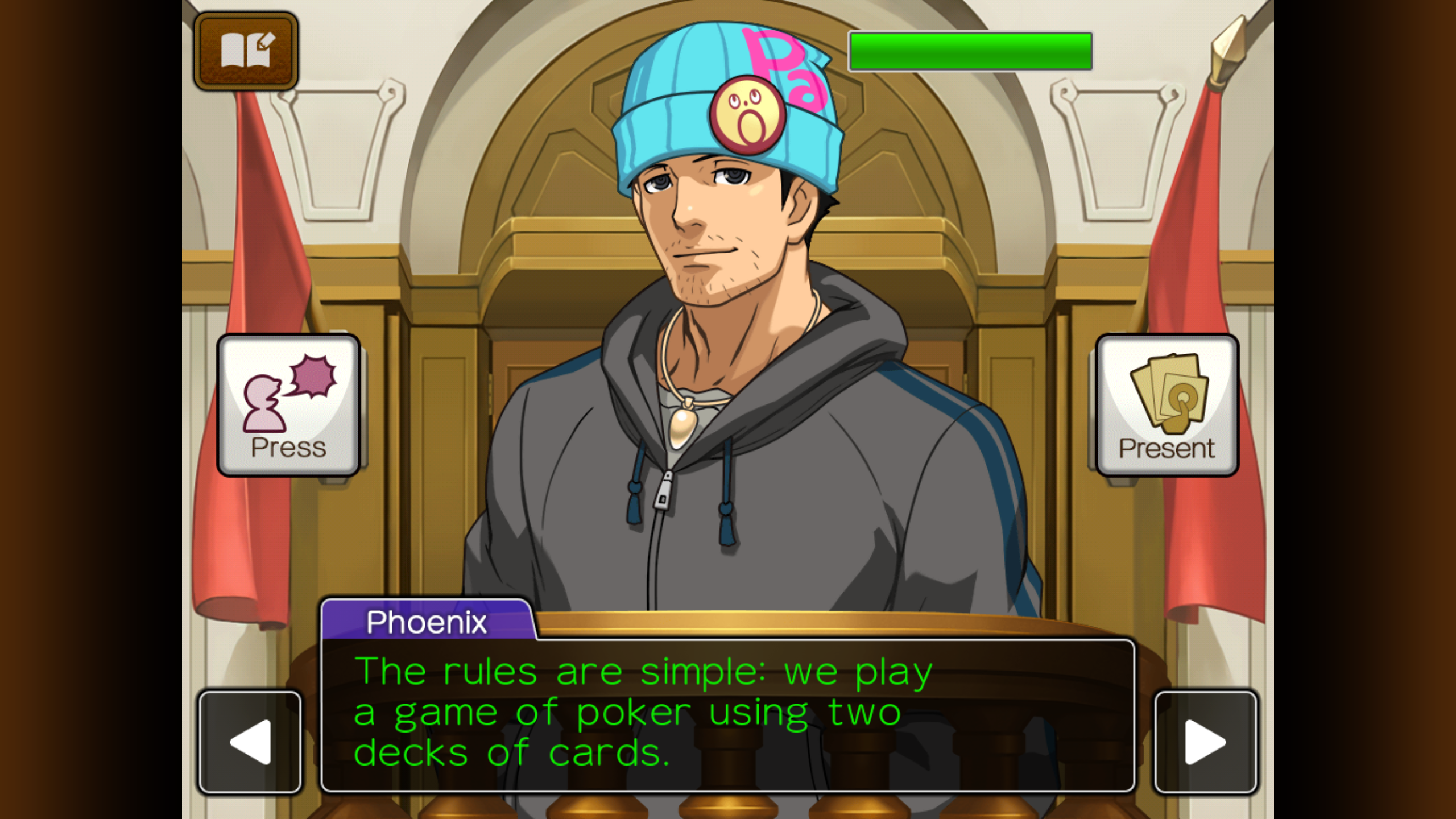
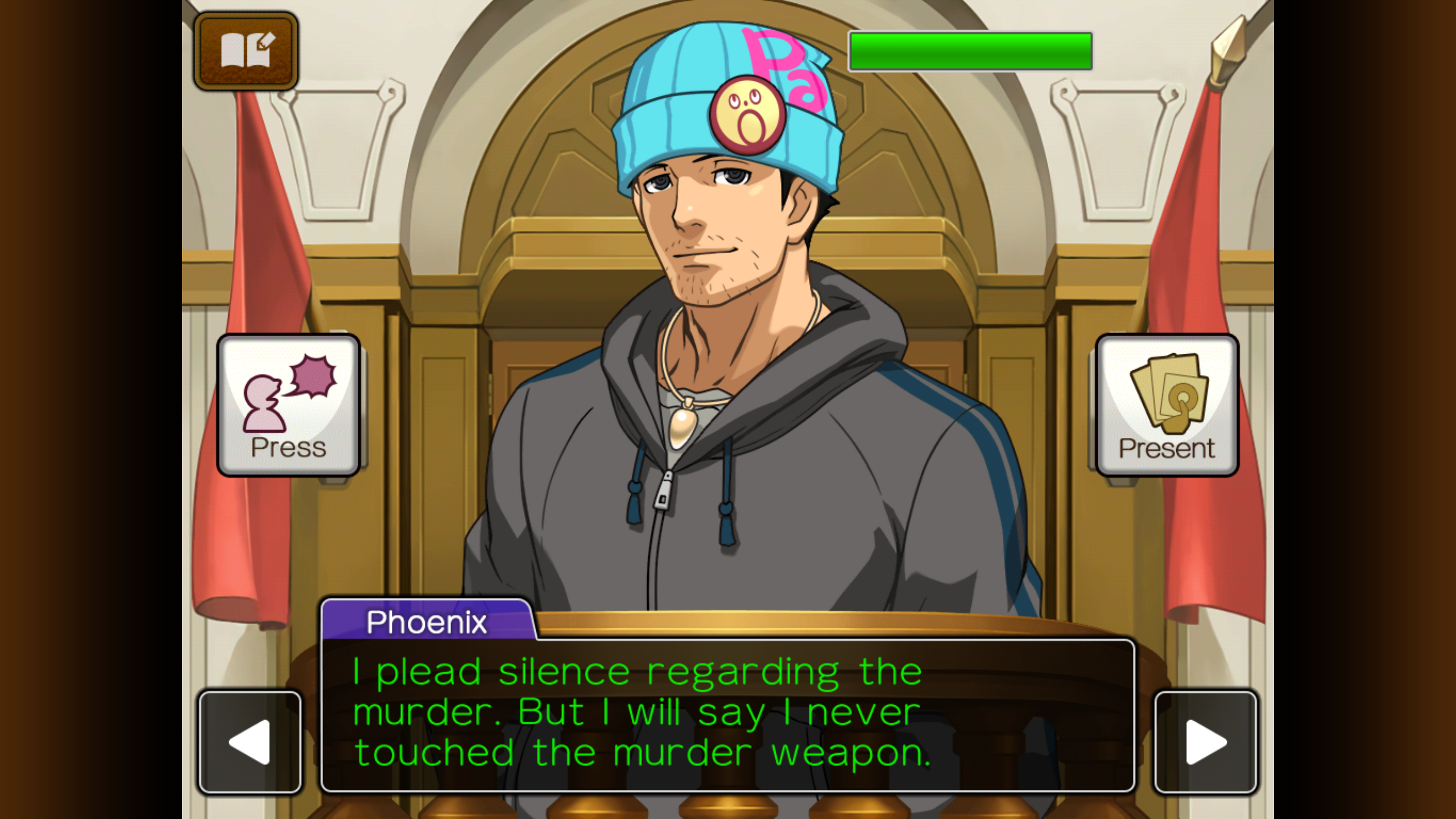

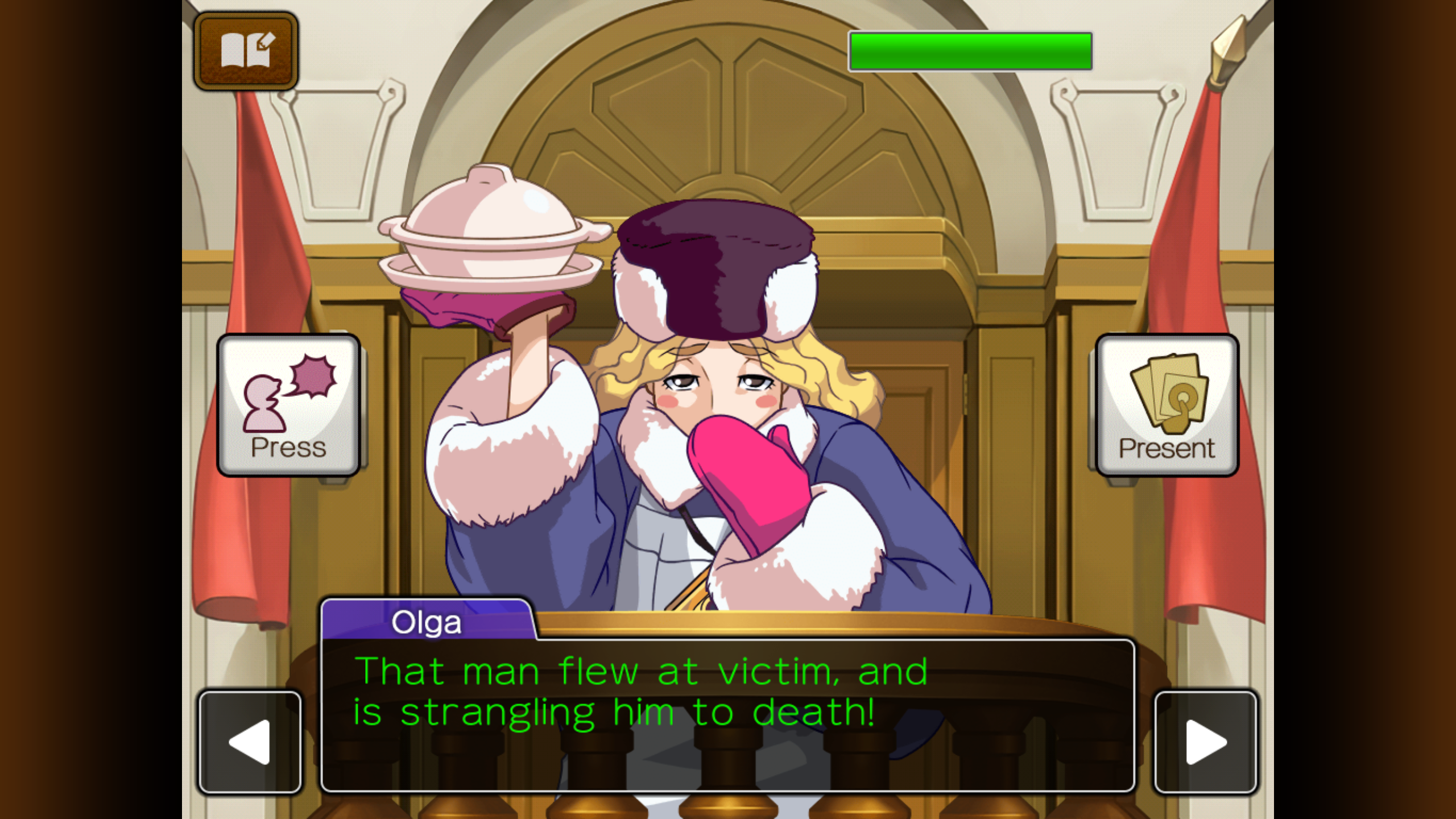
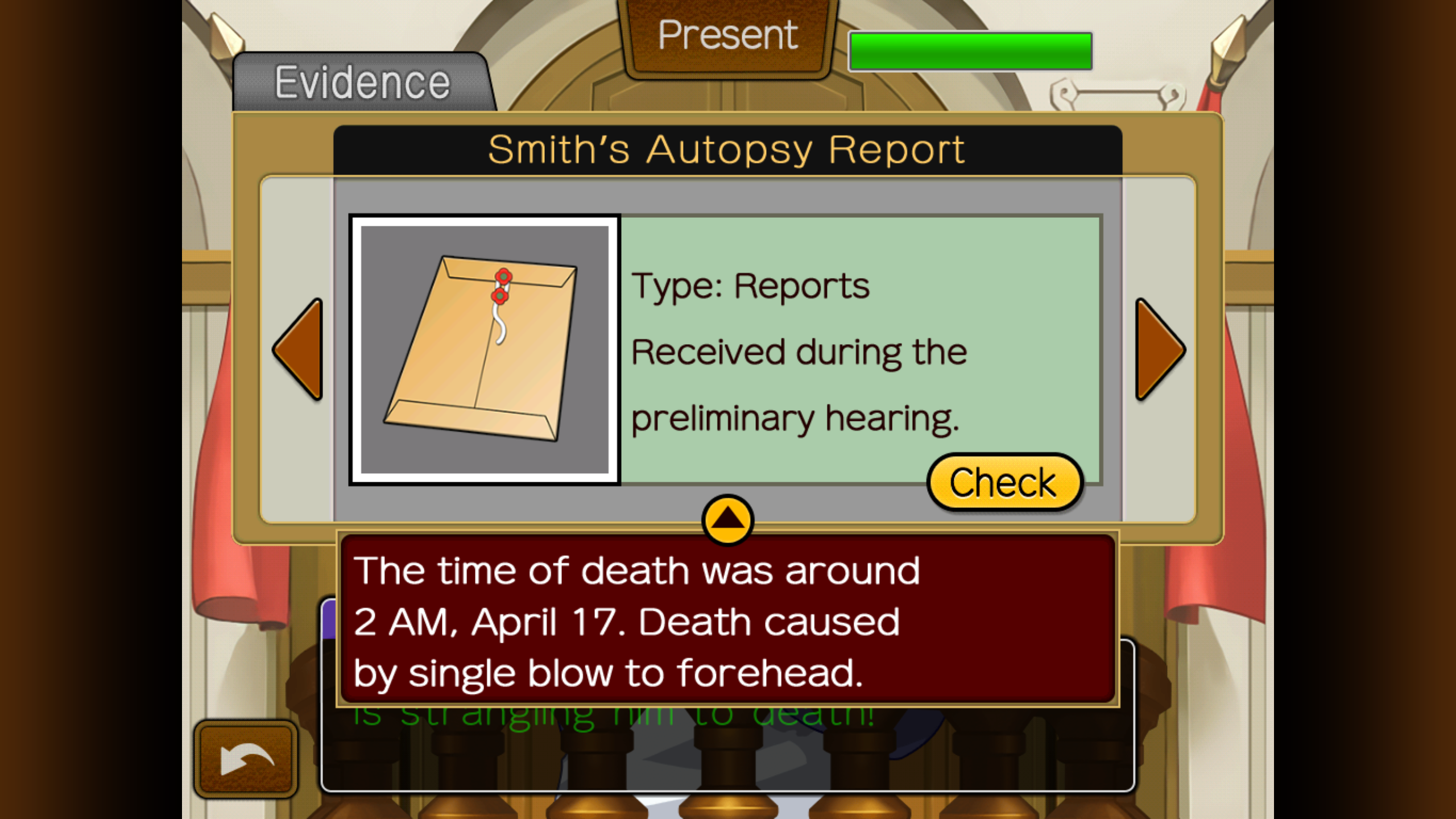
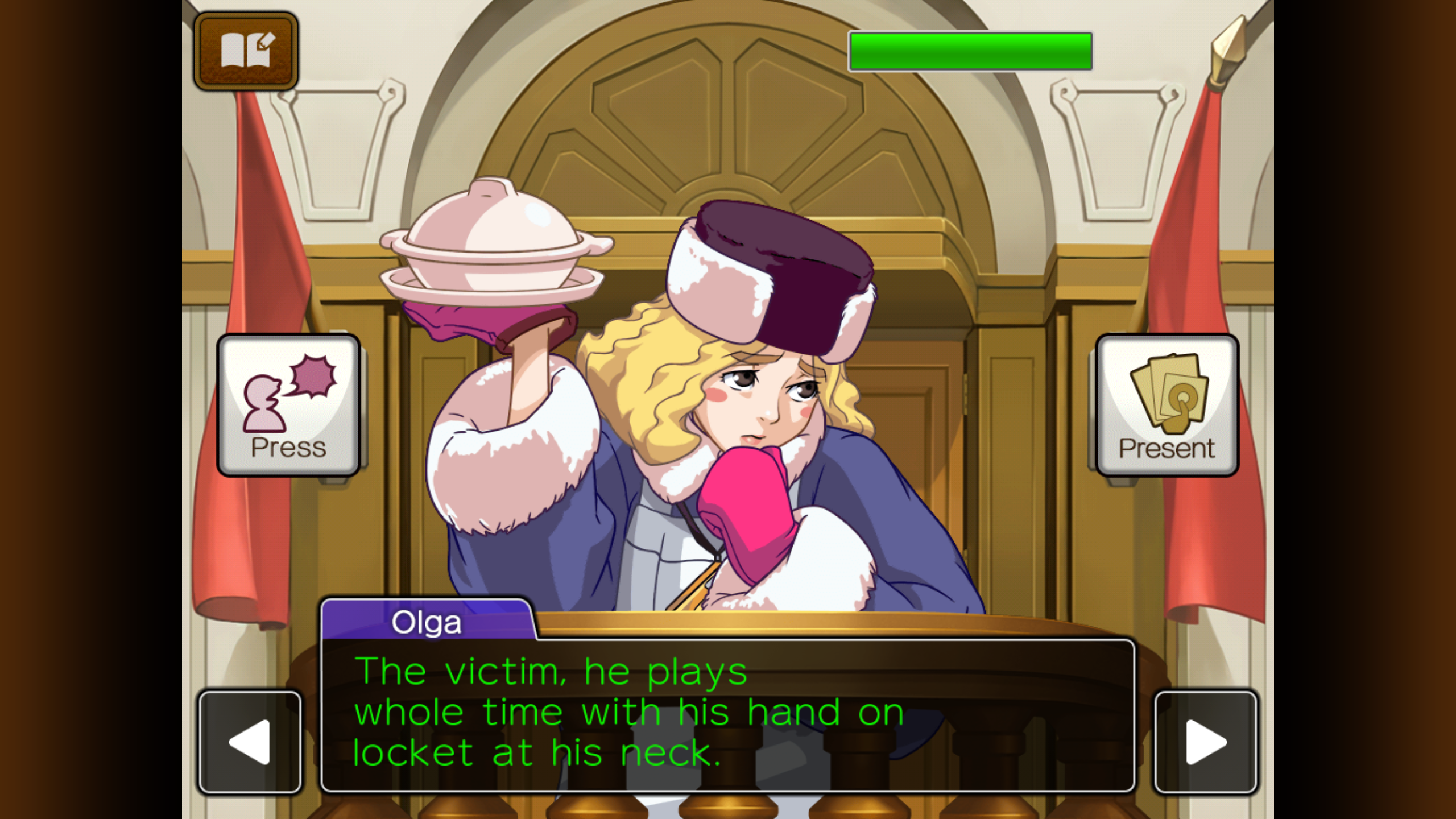
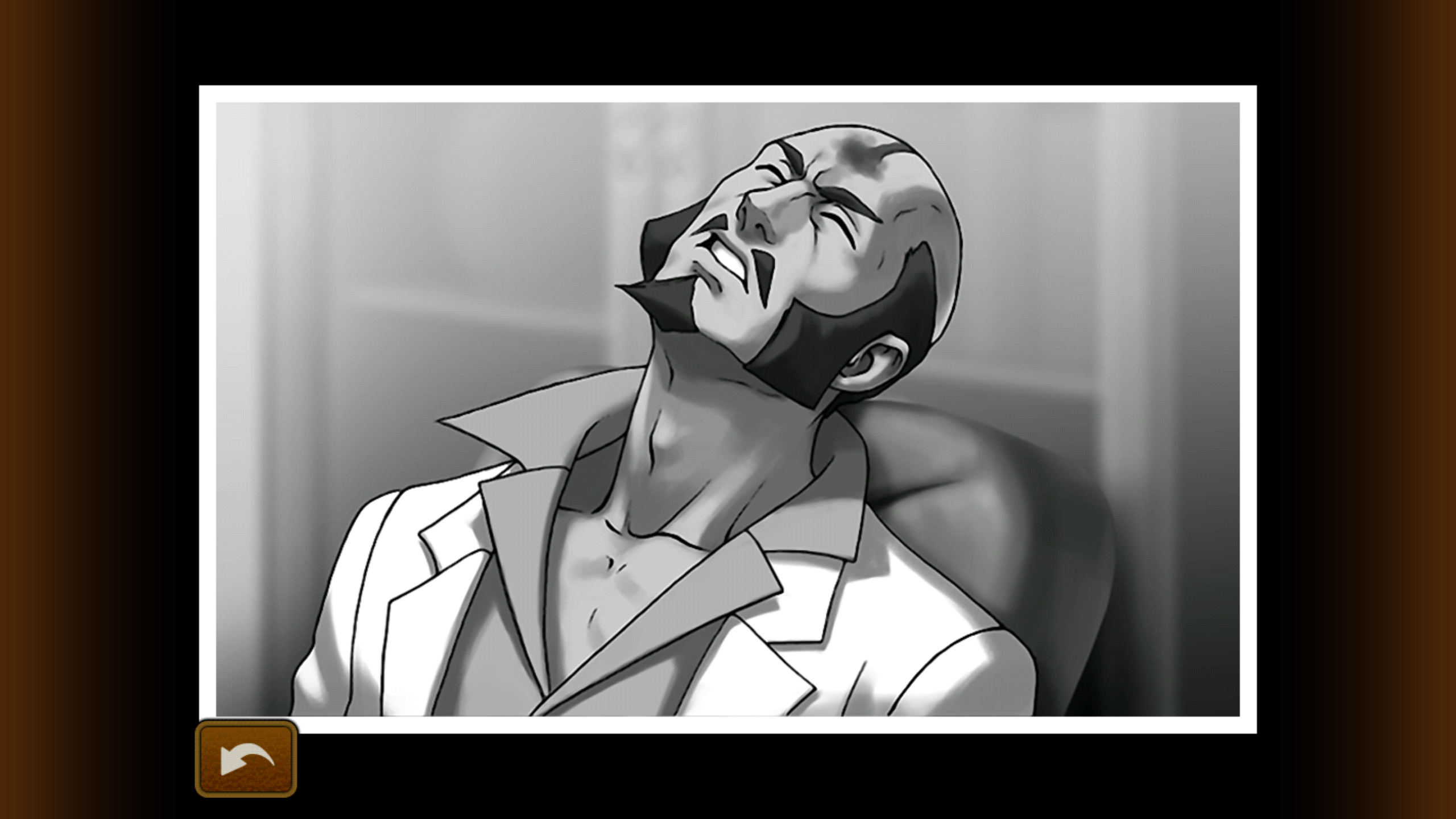
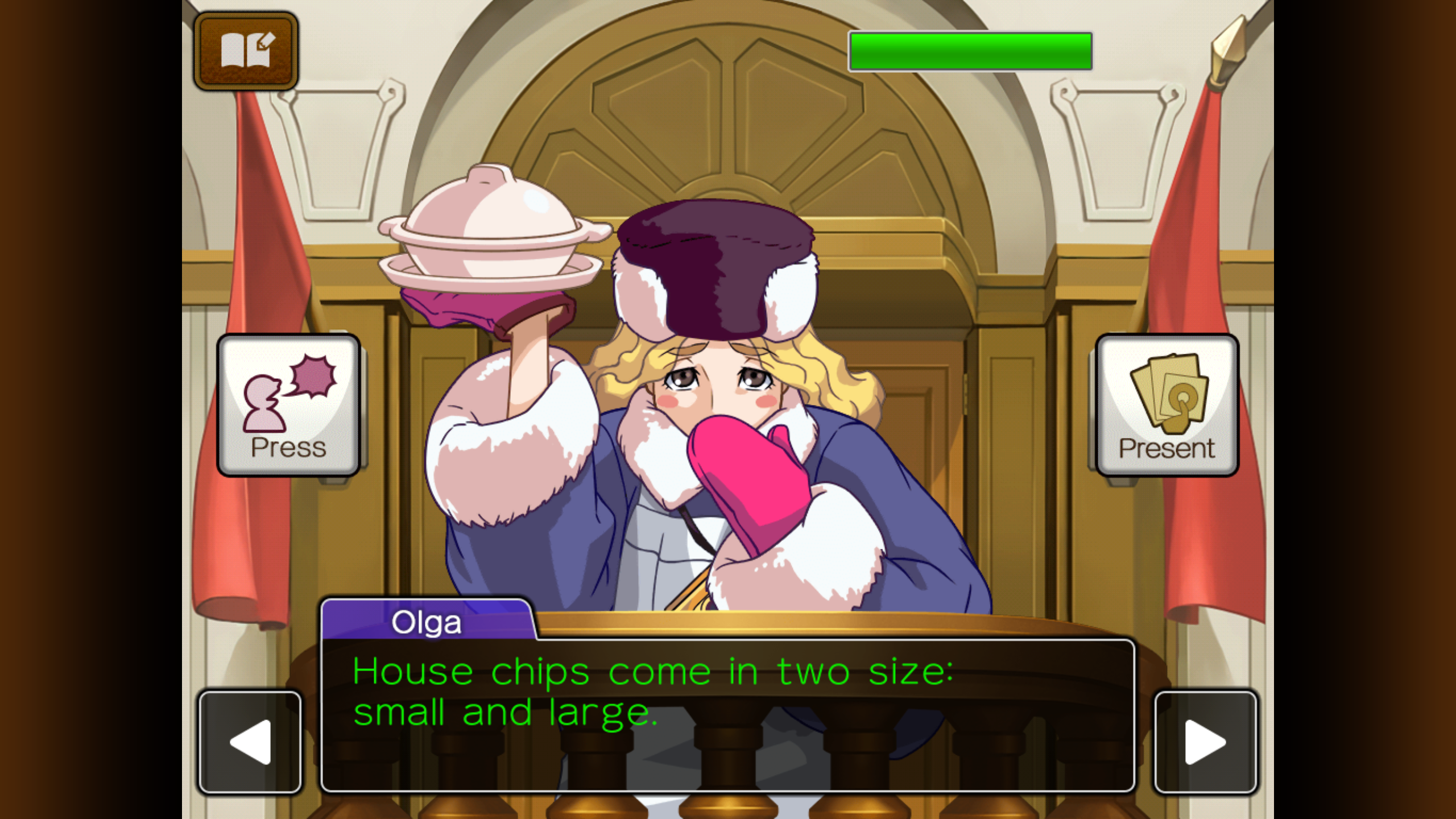
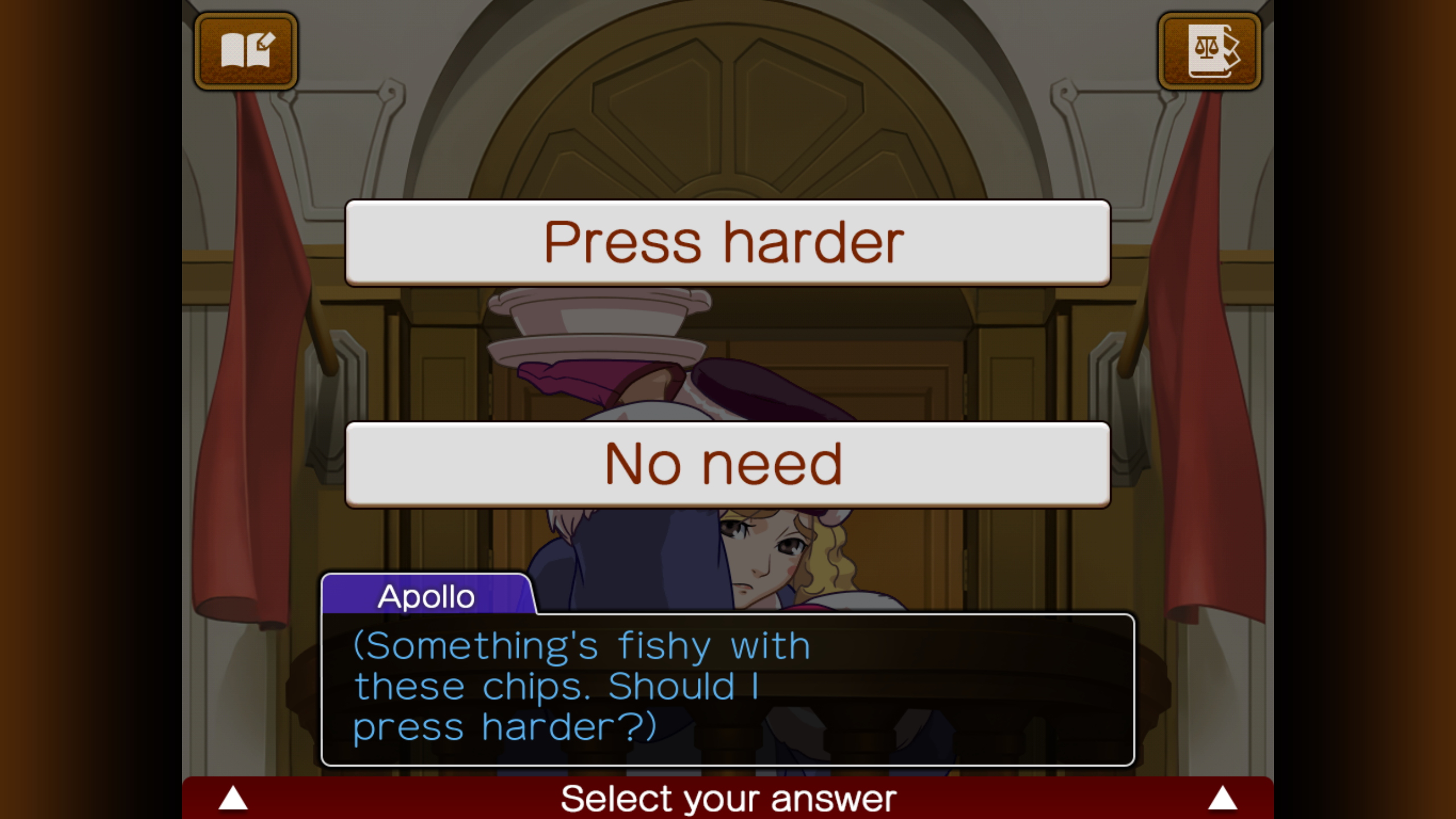
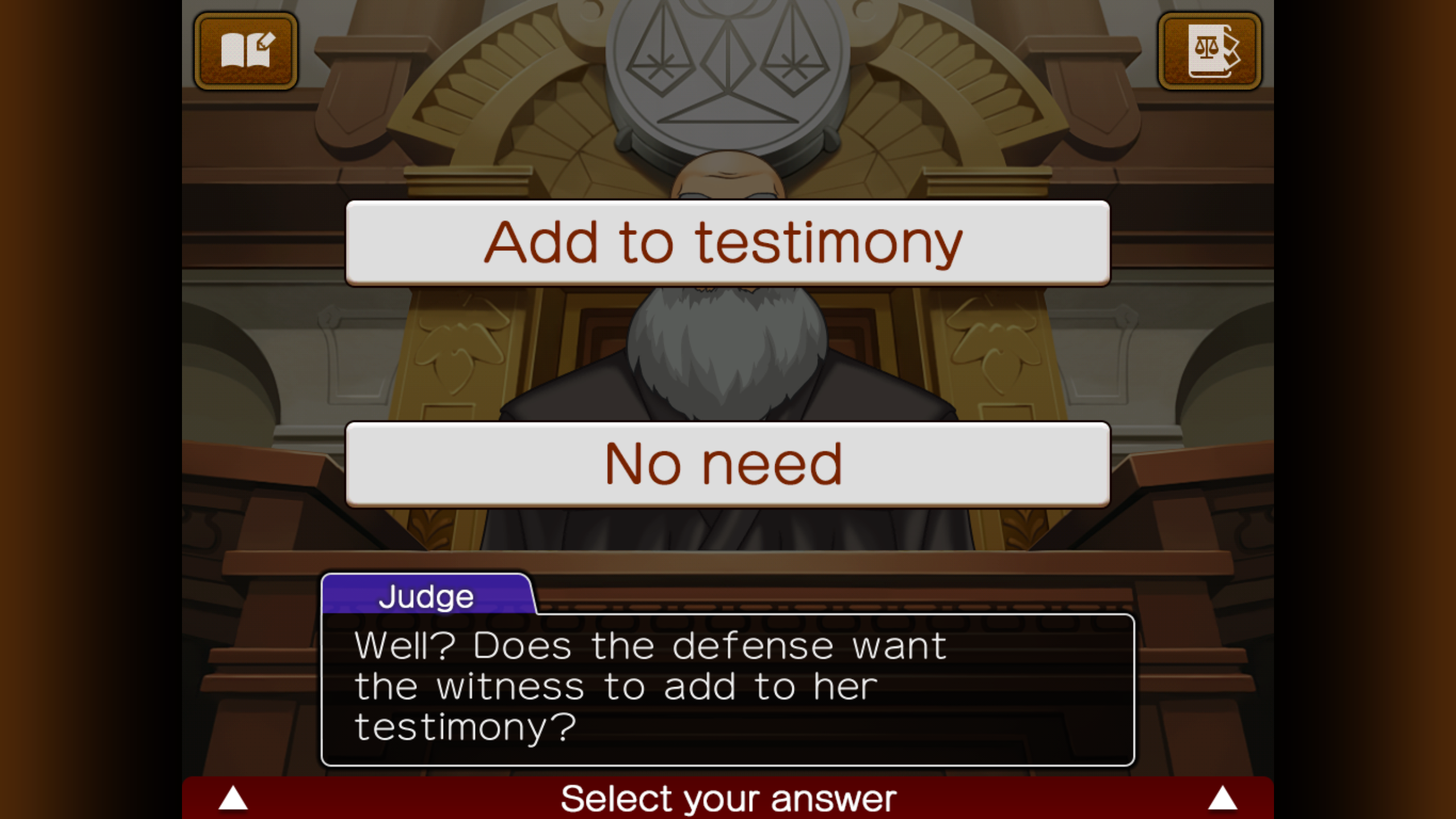
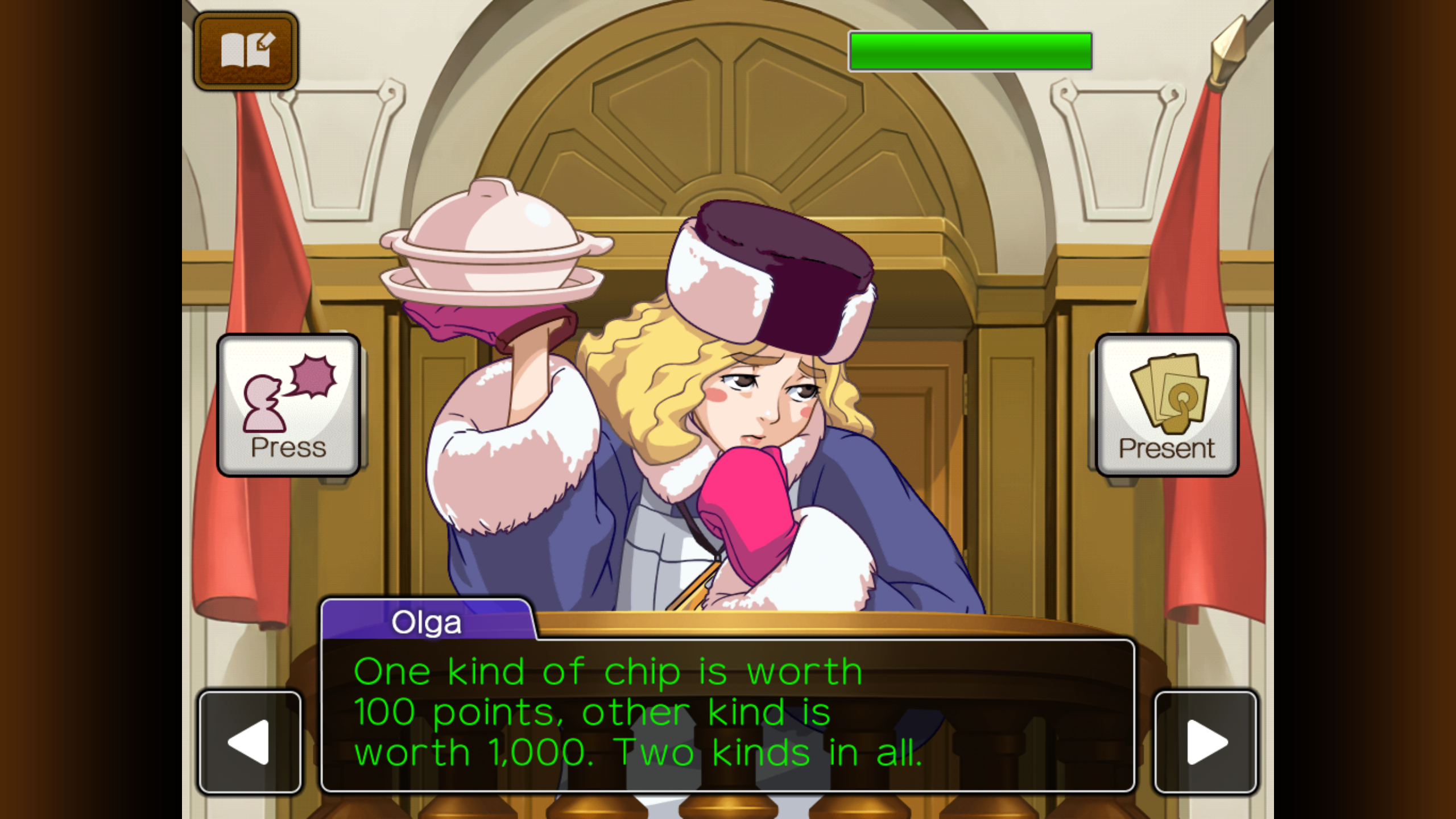
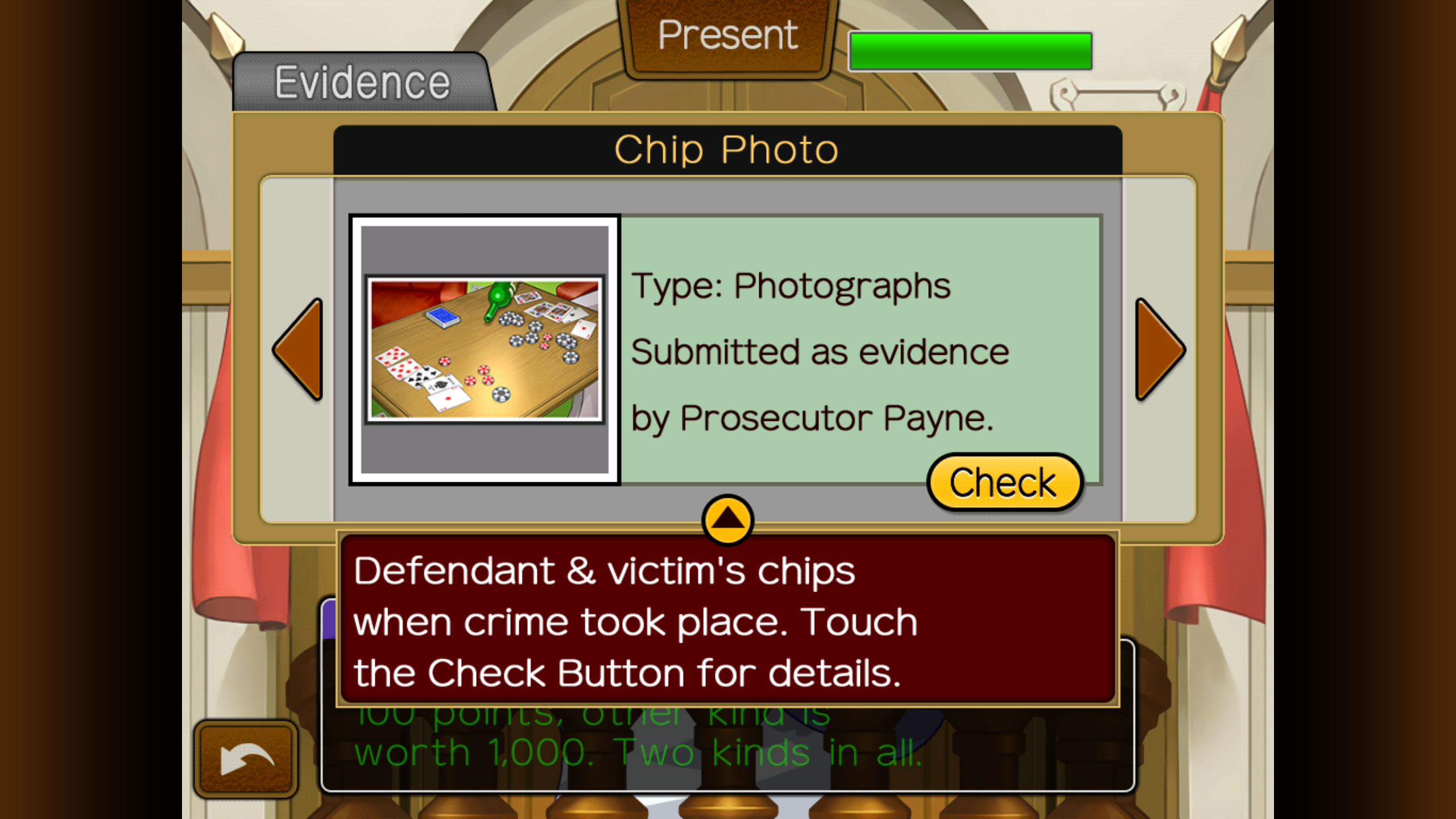

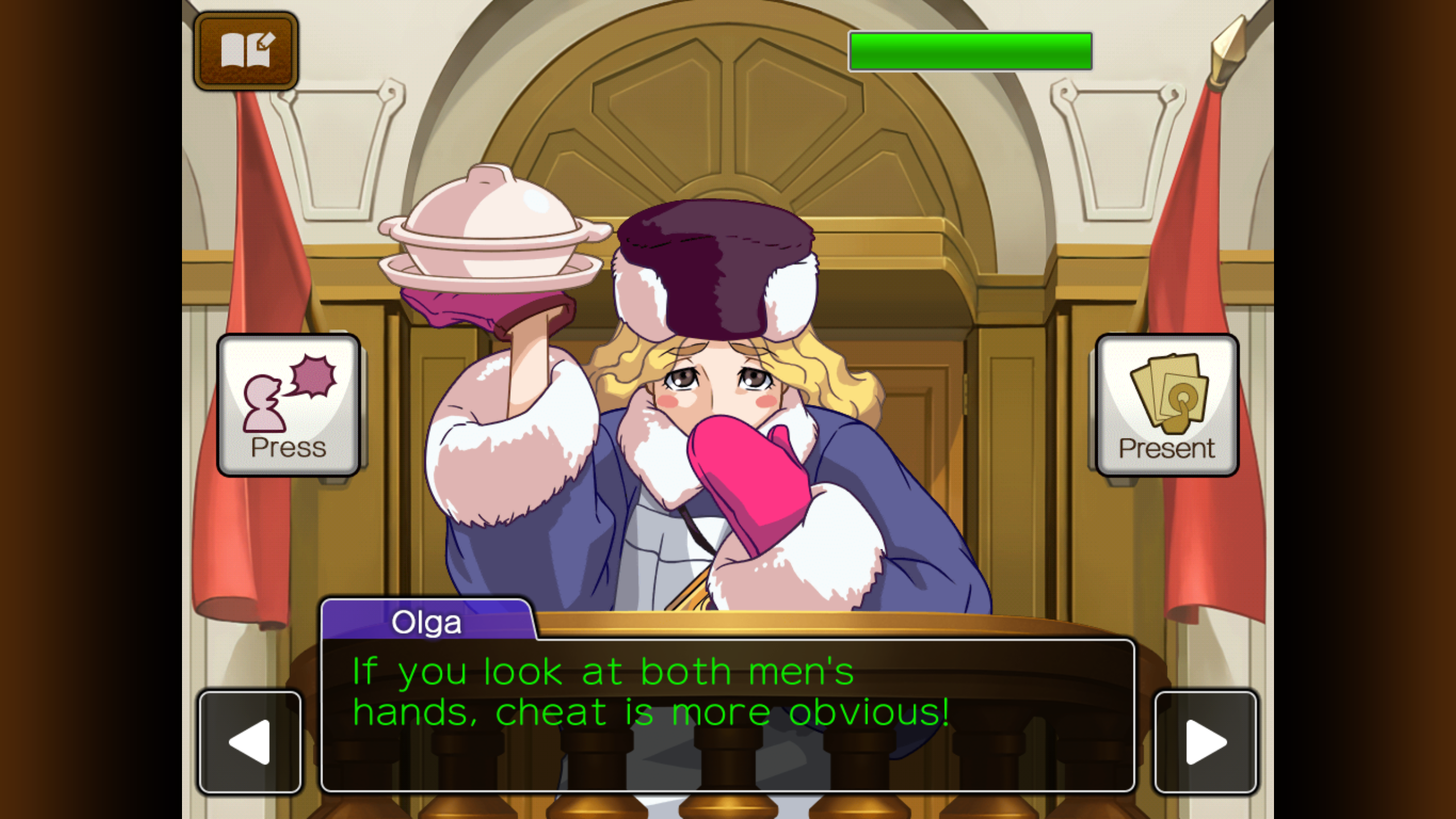
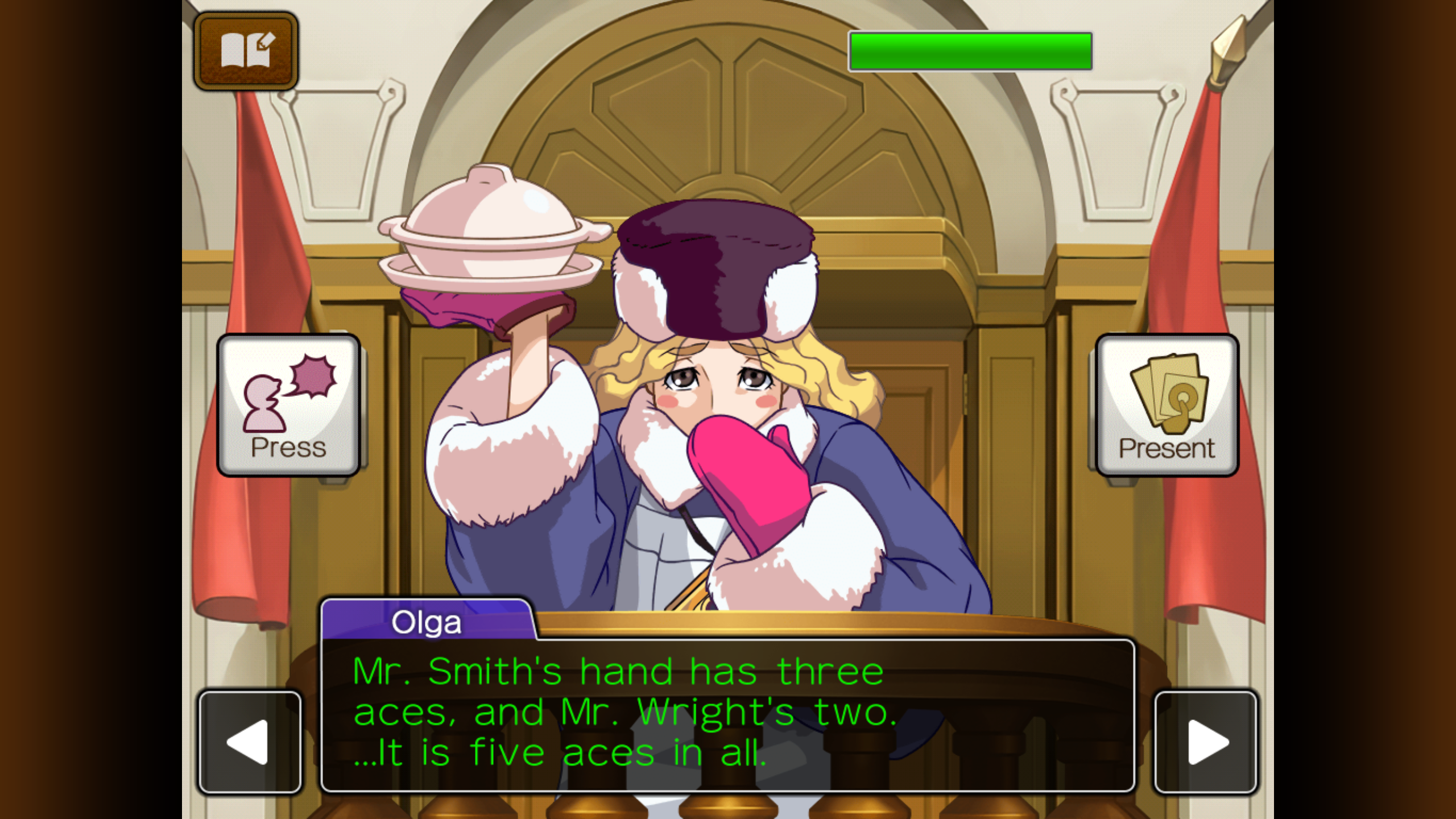
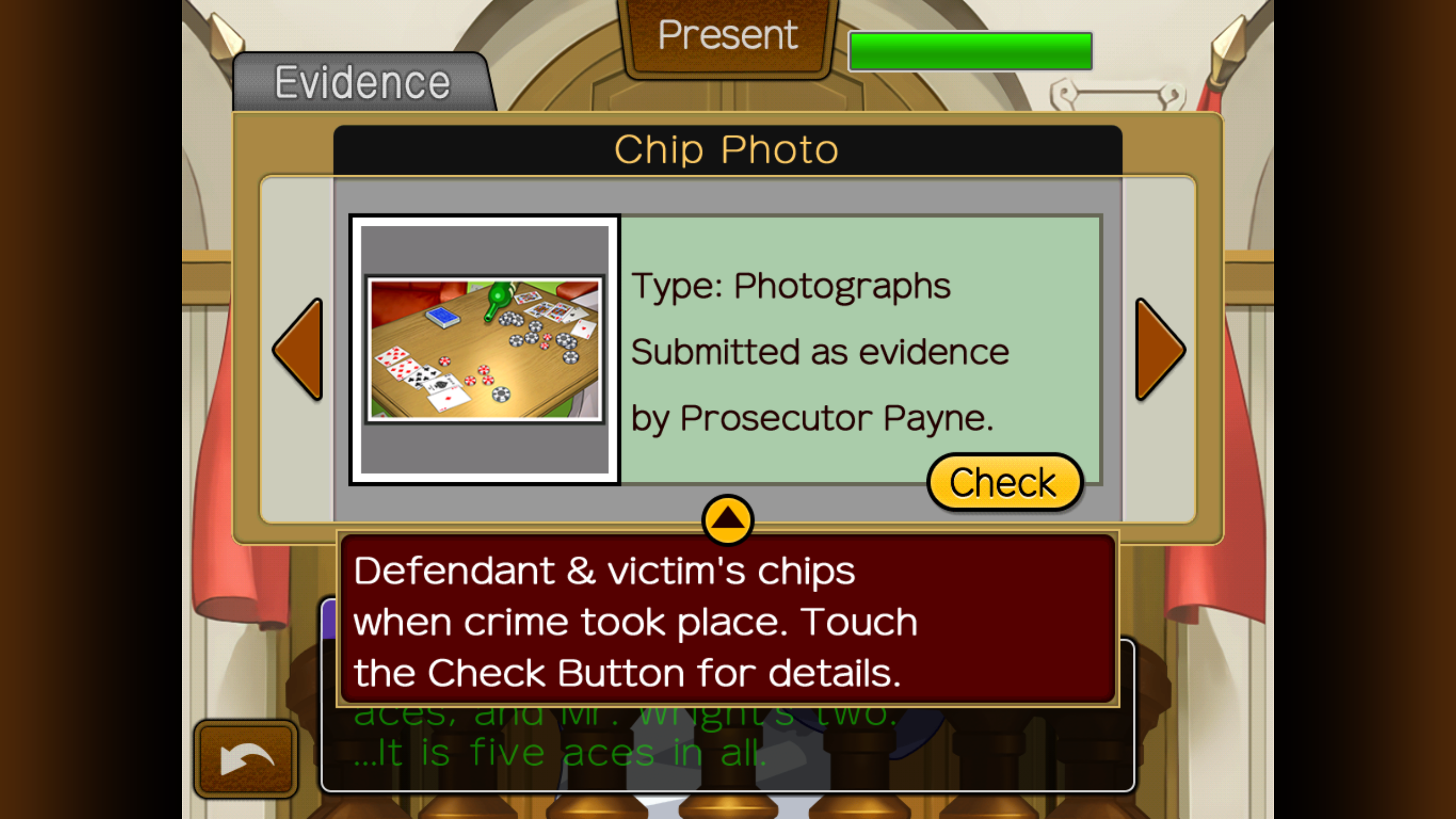

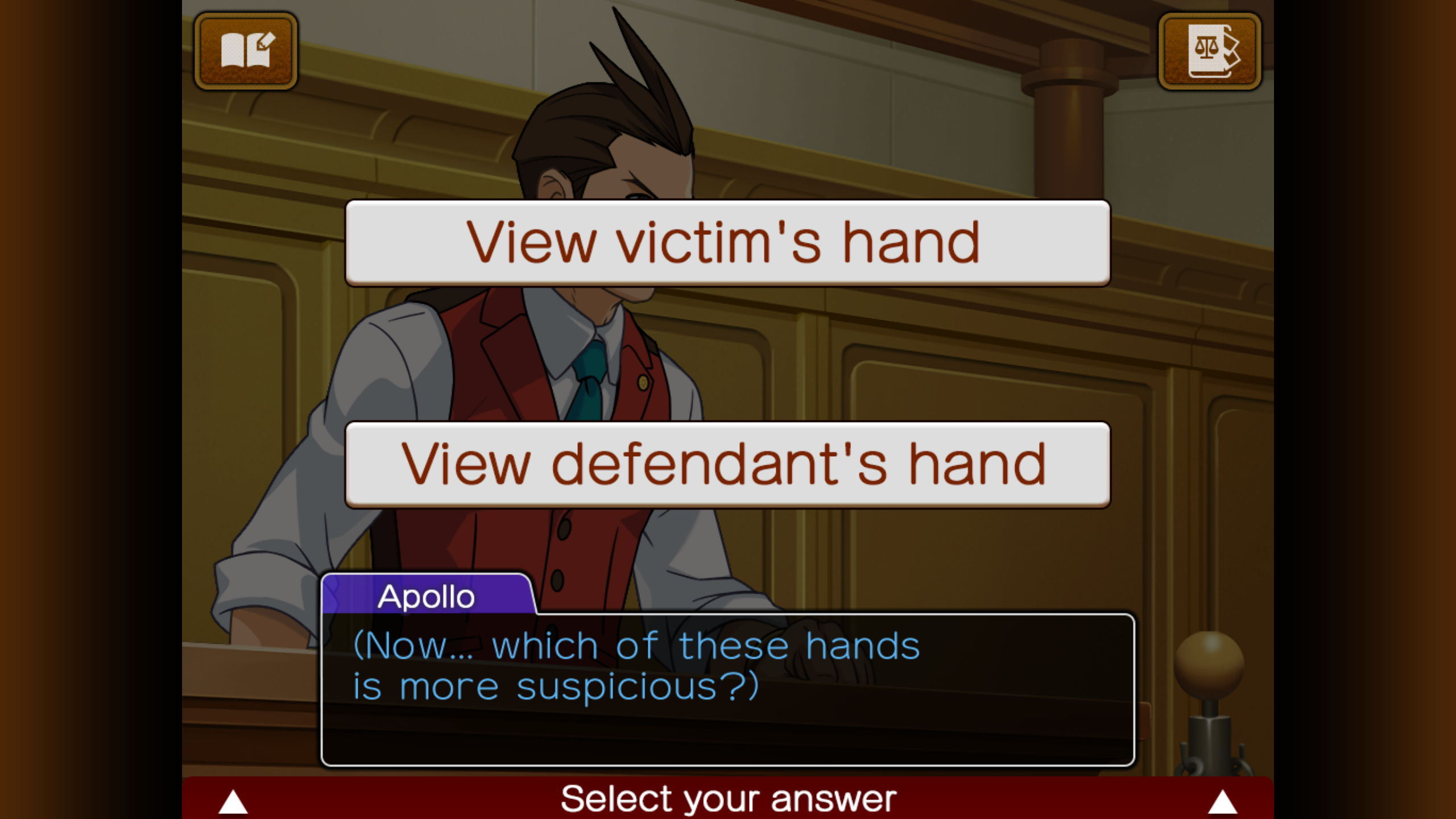

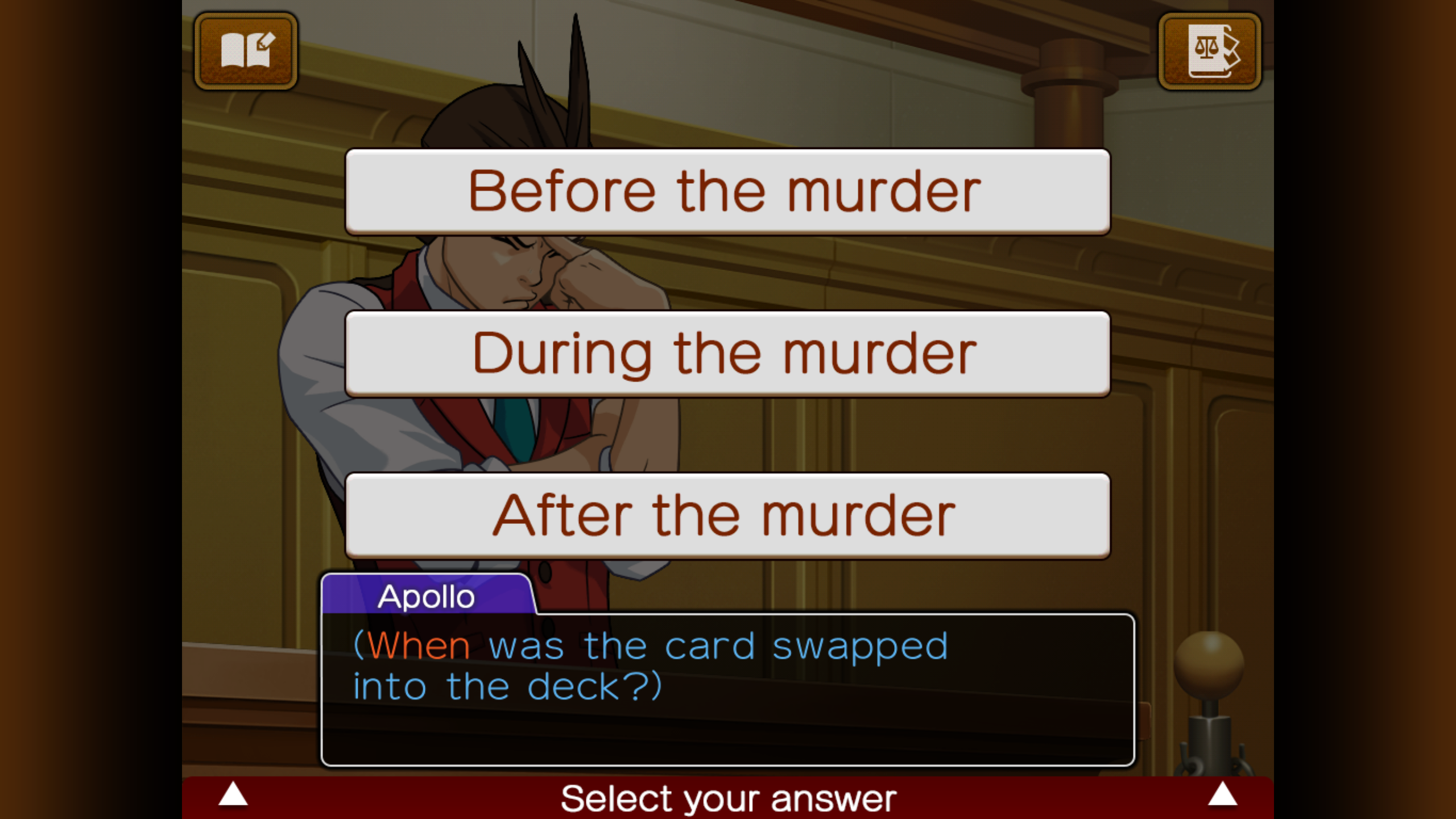
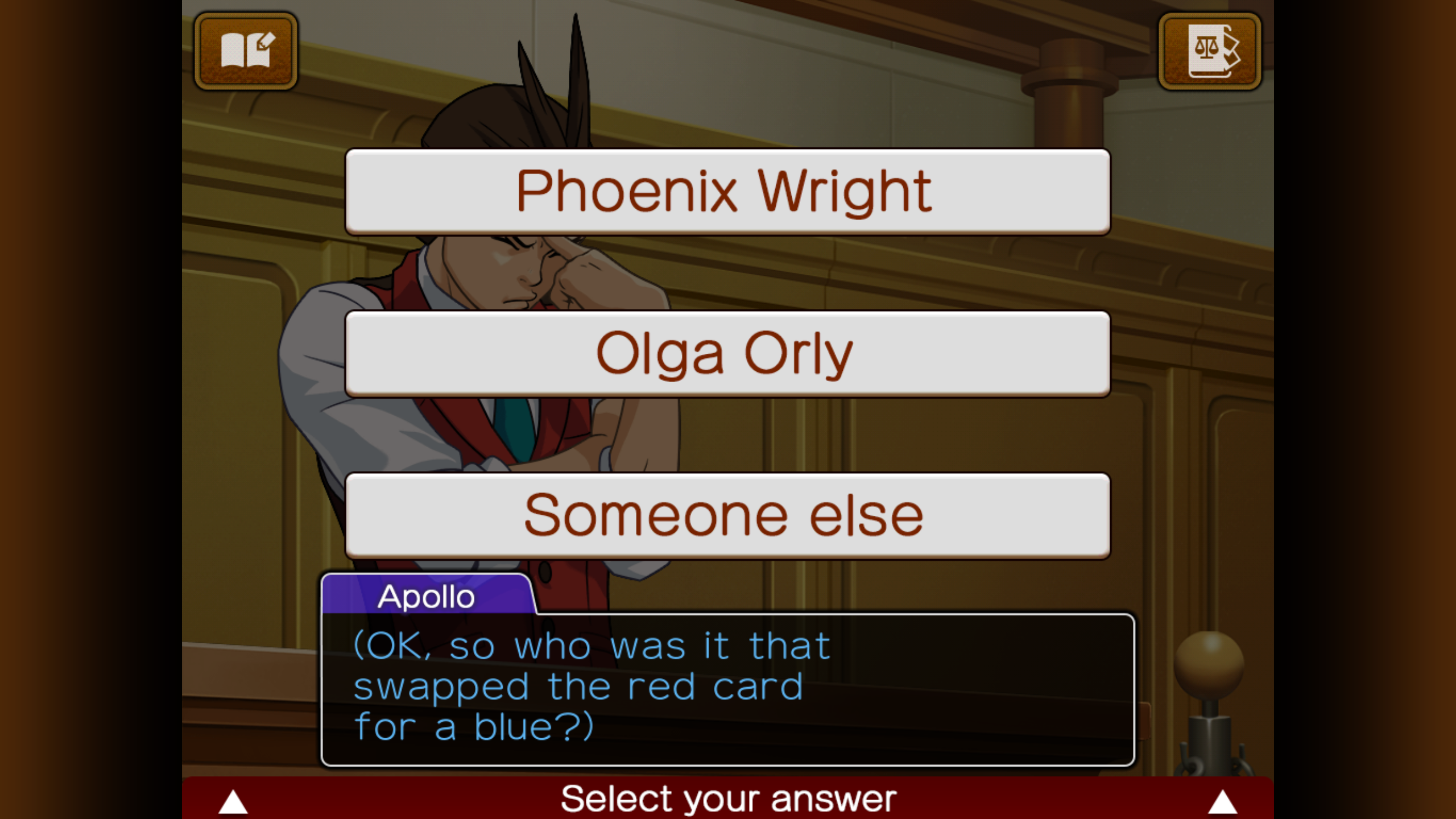
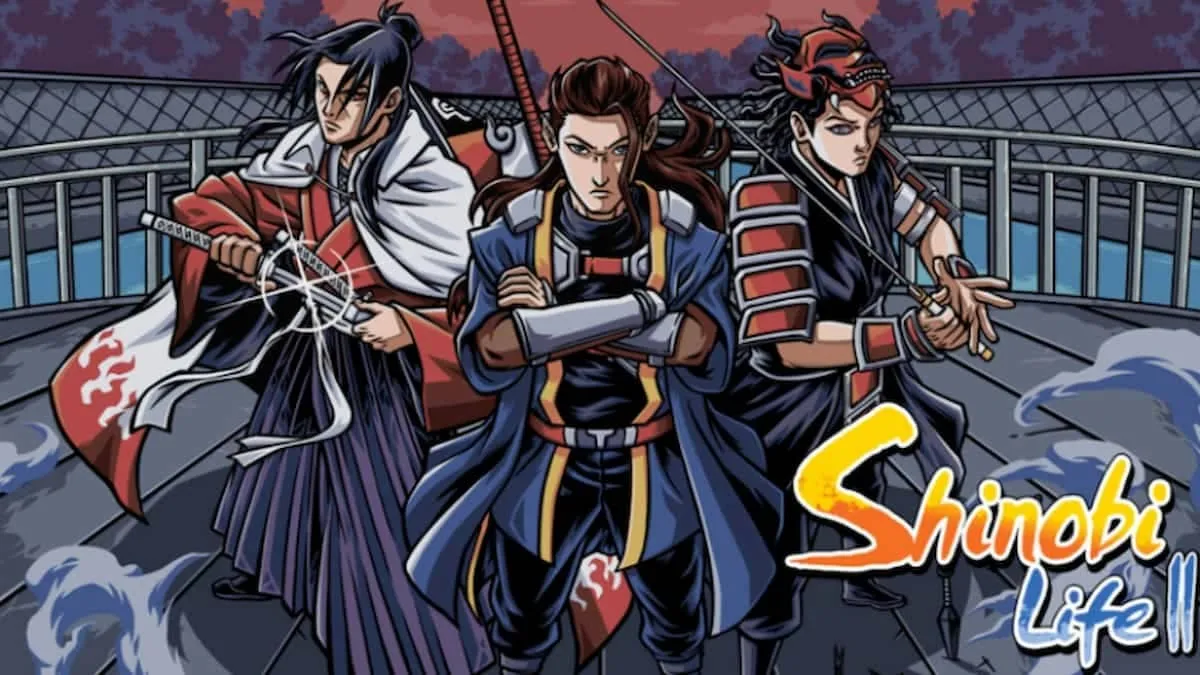




Published: Dec 7, 2016 10:32 am